Gossip is a venomous companion, a silent predator cloaked in whispers and knowing glances. It festers in secrecy, thriving in the corners of conversations where truth falters and integrity erodes. Gossip twists trust into betrayal, transforming bonds into battlegrounds, sowing discord like seeds in poisoned earth. Dark Chisme, a moniker pointedly referencing the shadowy art of malicious murmurs, dives headfirst into these perilous waters, confronting the destructive currents of hearsay and the power struggles born from whispered deceits.
With their searing single, Yo Puedo Vivir Sin Ti (I Can Live Without You), Dark Chisme channels these themes into a defiant act of reclamation. The Seattle-based duo, comprising vocalist-producer Christine Gutierrez and multi-instrumentalist “E,” weave dark wave, house, and techno into a propulsive embrace of gothic and Latin emotion. This track pulses with an intensity that’s equal parts rhythmic allure and emotional catharsis, a thrilling balance of vulnerability and empowerment.
Gutierrez’s vocals command attention with a strength reminiscent of 90s alternative icons such as Shirley Manson, Curve, and Sneaker Pimps. Her performance brims with an unyielding confidence, channeling emotional clarity amid atmospheric synths that spiral and coil around a potent, irresistible hook. The song’s lyrical core, a phrase often repeated in Latin music traditions, takes on new life here as a fierce proclamation of independence from toxic entanglements…family bonds or otherwise.
“I was going through some hard times with family, and felt like the song embodied that,” says Gutierrez. “I felt like the simple turn-of-phrase “No Puedo Vivir Sin Ti”, or “I Can’t Live Without You”, which is common in Latin music, was something that people who have gone through similar experiences would relate to. It can really apply to family, romantic relationships, or friendships. If you don’t have support from people close to you, you can live with them.”
Visually, directors Brennan Moring and Bella Petro complement the song’s themes of liberation and self-determination with a striking video narrative. Through stark, evocative imagery, the video captures the journey of shedding emotional shackles and embracing newfound strength. It underscores the importance of community, presenting the sanctuary of supportive spaces as antidotes to the corrosive effects of relational toxicity.
“The first day was shot at a dark wave night I throw at Baba Yaga, a venue here in Seattle,” Gutierrez reflects. “We were able to get all of the crowd shots at a packed club, and then did isolated shots of dancers and us on following days. We wanted the video to tell the same story as the song, expressing yourself in those environments like no one is watching, but also recognize how it feels to be a part of such a supportive community…No one was cast for the video. We wanted it to be raw and represent people from our community. It was important for us to represent how someone would feel listening to this song at a club or concert knowing they’re in a community where they feel comfortable, and can be in their own head and let go.”
Yo Puedo Vivir Sin Ti is Dark Chisme’s audacious manifesto; a rallying cry to assert one’s autonomy amidst manipulation and strife. It’s darkwave with a pulse, charged with the compelling force of reclaimed power.
Watch below:
You can listen to Yo Puedo Vivir Sin Ti at the link below and order the band’s self-titled album, Dark Chisme, here.
Dark Chisme spoke with Post-Punk.com about their creative process, their name, and their upcoming appearance at Glom Fest.
Could you tell us the story of how you two first met and decided to form Dark Chisme as a duo?
I’ve been in bands my whole life, but started doing vocals and drums for black metal bands in Chicago. I also did vocals for a indie/electronic band. At the same time, I’ve DJed everything from funk & soul, house, techno, latin, post-punk, goth, and dark wave. I especially leaned into the post-punk and dark wave after moving to Seattle, and kept having this urge to start making music again. I knew Erik from Chicago, who had played in some punk bands, and we decided to work on a few songs just to see what we could come up with. We performed our first two songs, Yo Puedo Vivir Sin Ti and Move at a DJ gig I had and kept writing from there.
Your music draws on goth, Latin music, dark wave, house, and techno—quite a unique fusion. How do these genres converge in your creative process? Were these shared influences, or did each of you bring something different to the mix?
Growing up in Chicago, especially in a latin household surrounded by QTBIPOC friends, really shaped a lot of my influences. My mom listened to traditional latin music, salsa and merengue, but was also into Chicago house, freestyle, and new wave especially in the QTBIPOC community. My dad was into Mexican classics, which gave me a huge appreciation for how mariachi singers put so much soul and passion into their vocals. My foster mother influenced me though psych and garage, too. Personally, my DJing introduced me into electro, bloghouse, industrial, New Wave, and house. Erik and I connected on heavier music like punk and metal and wanted to bring the intensity and hooks from that into something that was still dark and danceable.
The name “Dark Chisme” is intriguing and memorable. What inspired it, and how does the meaning of “chisme” (gossip) relate to the band’s identity?
After moving to Seattle, I changed my DJ name to “Gold Chisme” because I wanted something that shared my latin background. When we were thinking about a band name, we felt like “Dark Chisme” represented another side of my background that’s I’ve wanted to express.
Christine, your background includes DJing and production in Chicago, while Erik, you’re a multi-instrumentalist. How do these experiences shape your collaboration and songwriting process?
There’s definitely other reasons, but when I started “Dark Chisme”, one of my main goals was to make the kind of music I would like to DJ. Erik has played bass his whole life, and jumped at the opportunity to learn about sequencing and synthesis. We work together, sending each other samples, loops, and even voice memos of us “singing” melodies we think might work. A close friend, Aaron Sternke, also helped us to refine and layer elements, which allowed us to fill out our sound early on.
Let’s talk about your self-titled debut album from 2024. What themes or emotions were you exploring, and was there an overall narrative you wanted listeners to connect with?
I wanted to express themes of hardships related to my family, immigration, neglect and experiences in foster care, the US’s political climate, and the negative effects of beauty standards prominent in the music scene.
The record beautifully blends synth-driven beats with emotional intensity. Was there a song on the album that surprised you by how it resonated with listeners—or perhaps with you personally?
Beautiful Obsession Killer was one of those songs that started from a voice memo. I already had an idea for a song that addressed beauty standards, and the melodies and lyrics came together pretty quickly. It’s an personally emotional song, which I think comes across in the recorded track and when we play it live.
After the album, you released “Lost in the Night” as a standalone single. Could you share a bit about the inspiration behind that track and how it expands or shifts your sound?
Since we started, we’ve tried to bring live elements to our shows that aren’t in the recorded tracks, like bass, hardware synths, live percussion. This makes each performance unique, and has actually allowed the tracks from our LP to grow since recording them. Lost in the Night is our first track made completely with hardware synths, which we feel gives it a more organic feel than some of our previous work. We’re continuing this through other new tracks we’re writing for our second album which have a more aggressive sound.
Community and safe spaces seem central to the narrative of the video. Why was showcasing this sense of inclusive community important to you?
Growing up, I didn’t have much family support or guidance, and I was surrounded by substance abuse, neglect, and traumatic events. I often felt alone. But everything changed when I discovered alternative music – metal, punk, industrial, EBM, post-punk – through some friends. The lyrics spoke to me, made me feel seen, and like I wasn’t the only one who’d gone through what I had. I’d scour record shops, asking the staff for suggestions, and I was obsessed with collecting vinyls and CDs – still am! From there, I started hitting up shows at the Metro Chicago, house parties, Punkin Donuts (yes, with a P. Where goths, punks, metalhead hung out in the late 80’s – 2000’s) drag performances, and dance nights at Neo, this historical goth club. I’d learn new music from the DJs and performers, meet incredible people who welcomed me with open arms, and finally felt like I belonged. The pain I’d gone through became a source of strength, and the community became my lifeline. We got here because of the people in the goth and alternative music scene who took us in, and the unwavering support from our QTBIPOC community.
The song title—”Yo Puedo Vivir Sin Ti” (“I Can Live Without You”)—puts an empowering spin on traditional Latin music tropes. Could you share more about how this message evolved during the songwriting process?
We wanted to share a moment of independence. Growing up, I struggled with loving myself and having alone time. I always felt I had to fill the ‘void’ and sometimes that desperation lead to filling that void with people that constantly hurt you just to feel complete. Before writing the song, Erik and I talked about it for a while. He’s been through some similar challenges with not being your own biggest fan. We wanted to create a straight forward song, kind of like an anthem. “I can live without you.” I can continue my path without you. Many Latin ballads tend to sing about needing someone and not being able to move on. I just wanted to be like, nah…I got this, bye!
Your lyrics blend English and Spanish seamlessly. Does writing in Spanish help you access a different emotional space or cultural authenticity in your music?
Wow, I really like this question. It does help me access a different emotional state. Some words just hit harder for me in Spanish. For me, the meaning feels stronger in some parts and just feels right for me to sing. Being able to sing in both languages makes me feel closer to my culture. I always admired bands from different countries and hearing songs in different languages.
You’re about to play Glom Fest, a festival celebrating darkwave, post-punk, and independent artists. Why do you think independent festivals like Glom Fest are important for the scene?
The more festivals like these, the better! Our community grows and thrives when we come together like this. Since Glom booked us, we’ve felt nothing but constant support, respect, and care – it’s exactly what artists need to grow and feel welcomed. We love the mix of big-name shows and independent/local artists; it keeps things fresh. Supporting independent artists is key, and Glom nails that balance…We’re stoked to meet all the bands and connect with fellow artists. Supporting each other in this scene is key, and we love traveling with bands from different backgrounds – it’s always a rad experience.
For those planning to catch you live at Glom Fest, how would you describe a Dark Chisme live set? What sort of energy and experience can they anticipate?
We’ll look cute for a couple of minutes, but after that, expect headbanging, dancing and singing in sweat for the rest of the show. We love interacting with the crowd, singing along, and dancing with you guys because it genuinely feels special every time. We’ll express our gratitude until our last breath. The past year and a half has been incredibly special – I’m getting emotional just thinking about it. It’s been a dream to make music again and travel, connecting with people on this level. We’re thankful beyond words to everyone who’s listened to our music, especially the bilingual dark wave community that’s supported us. We love meeting you all at our shows, hearing your stories, and seeing how our music connects with you. Thanks for coming to our shows, especially those who come to multiple ones – it means the world to us. And to the bands we’ve performed with, thanks for being so welcoming and amazing. We’re grateful for this journey with all of you and appreciate Glom for hosting an awesome fest!
Given the positive reception of your debut album and recent singles, what’s next for the band?
We’re excited to plan our next moves, with Europe and Latin America for next year – maybe. A full US tour would also be an incredible opportunity for us. We’re looking to elevate our music by incorporating the lessons we’ve learned over the past year, adding a touch of aggression, darker techno beats, EBM influences, and more energy. We’ll also be introducing new elements like guitar with additional synths and percussion to our sound. Additionally, we’re working on another music video, which we’re looking forward to sharing soon.§
Dark Chisme will be touring with Glōm Fest this September; grab your tickets here.
Festival Dates and Locations:
- September 12: Los Angeles, CA – The Lodge Room
- September 13: San Francisco, CA – DNA Lounge (Main Room)
- September 19: Portland, OR – Star Theater
- September 20: Vancouver, BC – The Cobalt
Follow Dark Chisme:

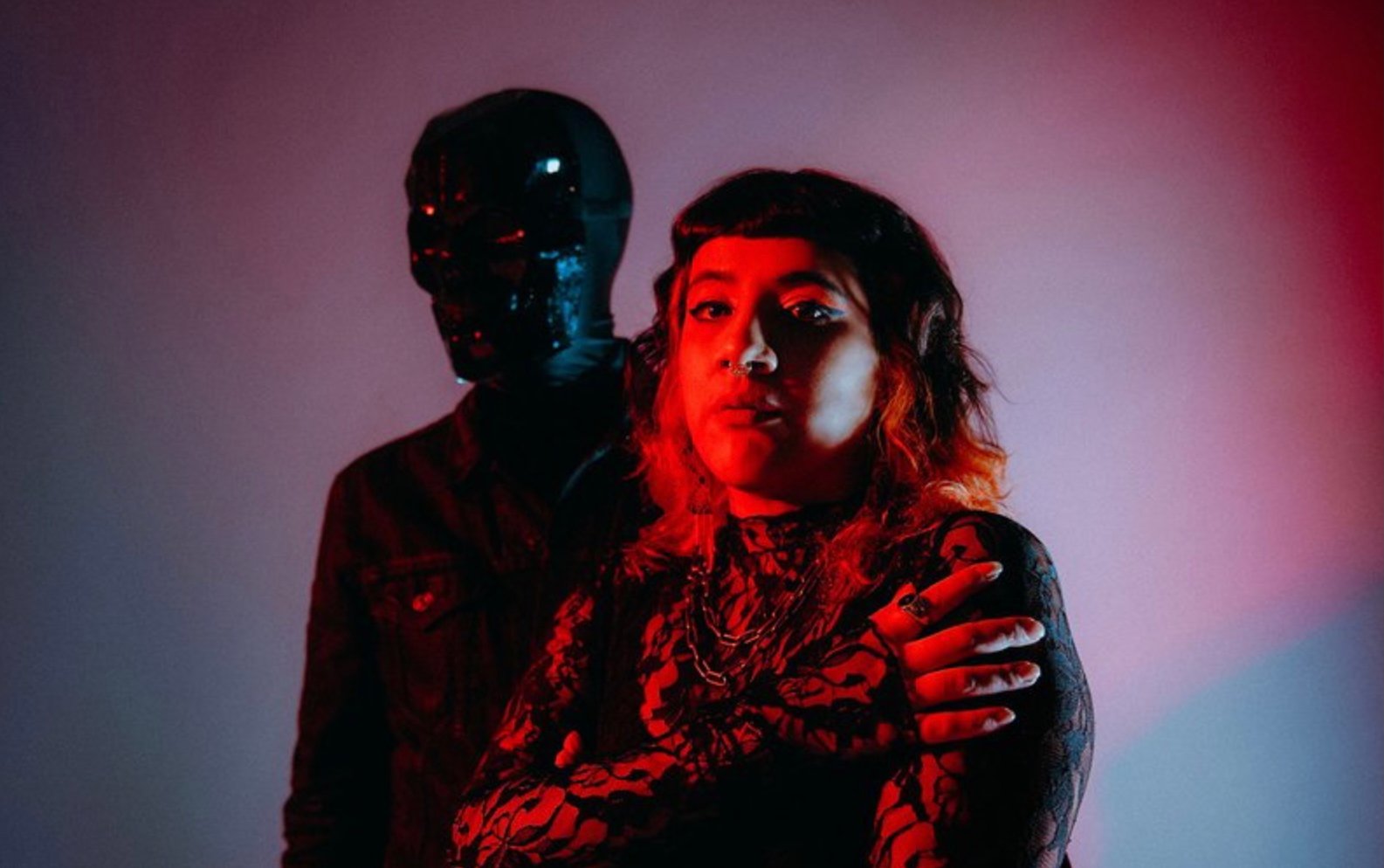

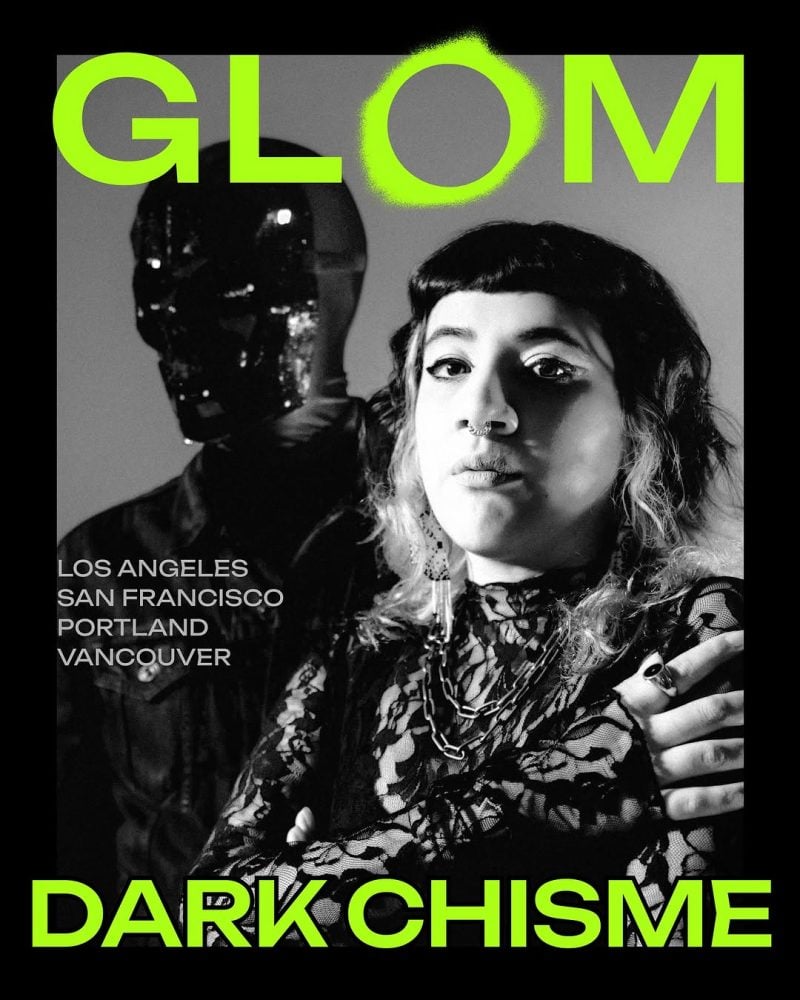
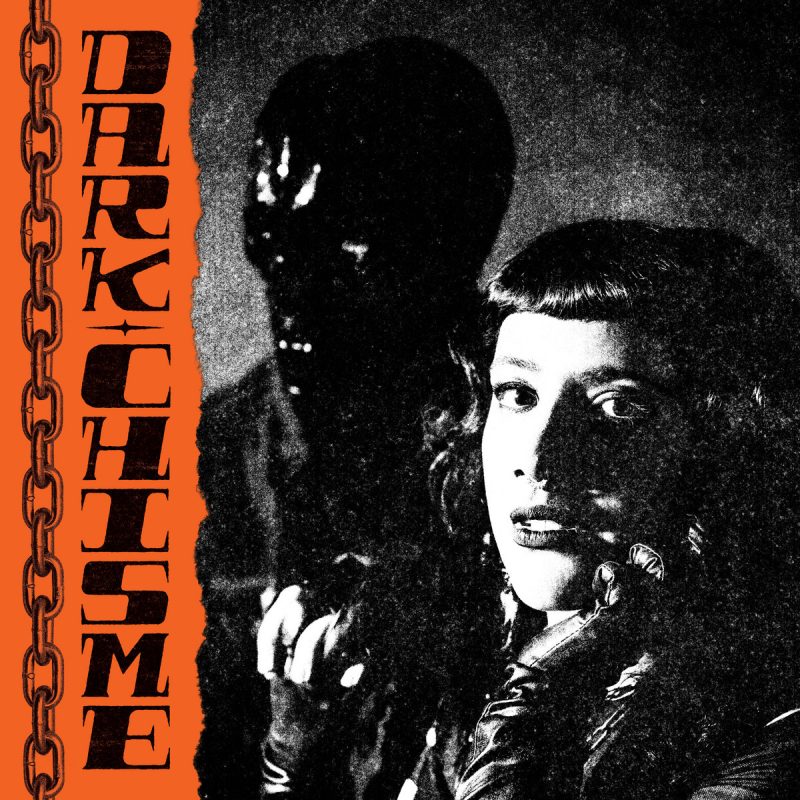
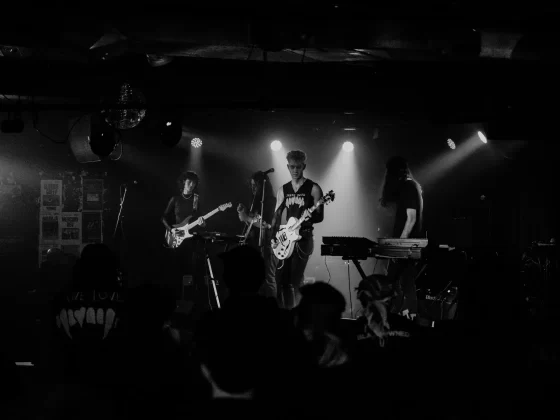
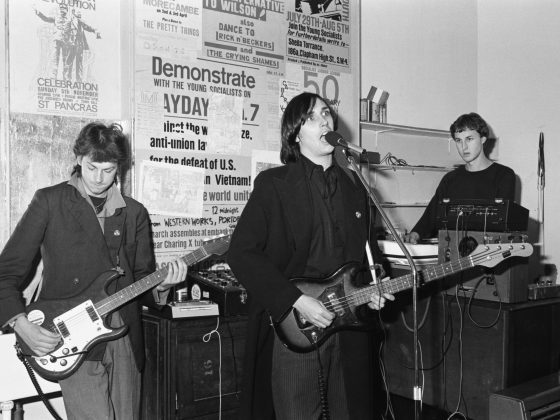

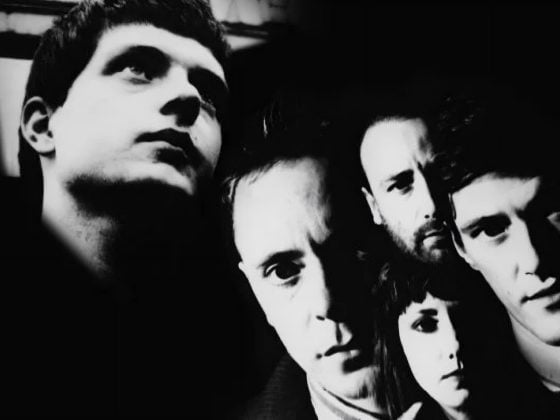


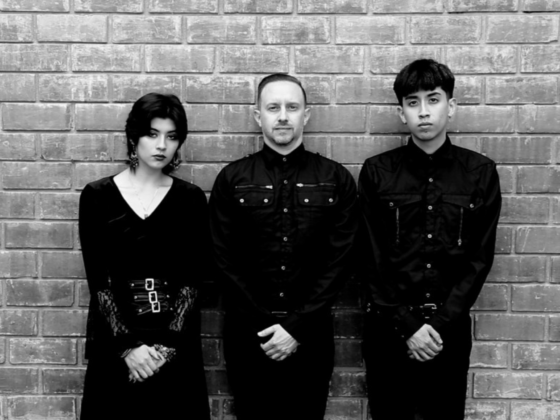




 Or via:
Or via: